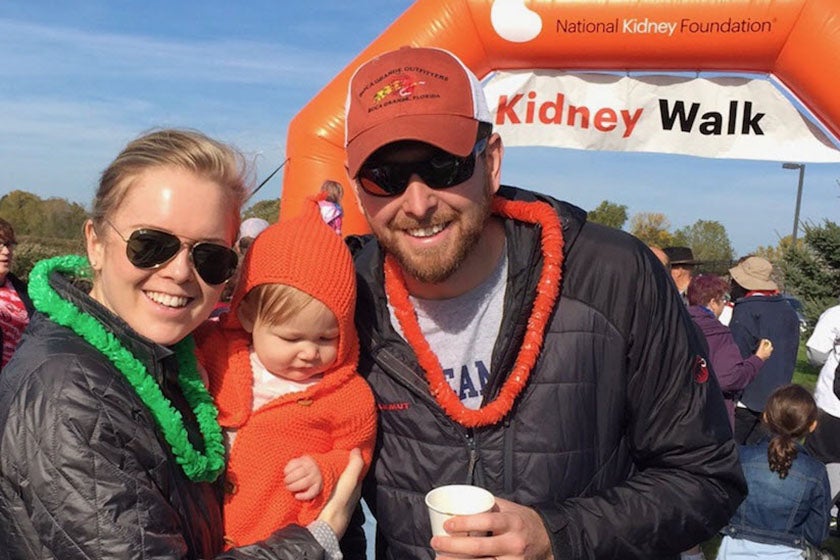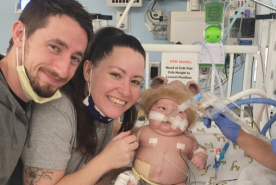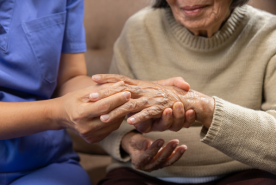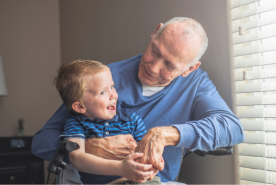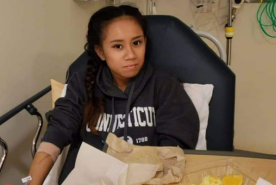July 20, 2017
By Andrea Schmidt, transplant recipient and NKF supporter
My name is Andrea Schmidt and I am a kidney transplant recipient.
Let me introduce my story the way I do to other recipients. This is a kind of short hand that transplant recipients speak to each other. We have a way of distilling our medical history into a few lines and it follows this format: number of years post-transplant, number of transplants, years on dialysis, and donor. So this is mine: 3 years post-transplant, first kidney, no dialysis, living related donor.
So now you’re in on it; you know about the shorthand.
The long story is this: I was diagnosed with kidney disease when I was 17 as a senior in high school. My kidneys were damaged by a virus called Henoch Schoenlin Purpura (HSP). We suspect the HSP was a result of the meningitis vaccination I had received.
With the help of my nephrologist, my Chronic Kidney Disease was managed at Stage 3 with daily medication for 10 years.
And then it wasn’t.
My routine lab work came back elevated one spring and a biopsy confirmed that the HSP virus that had been dormant in my system for 10 years had woken up. The treatment playbook and medication cocktail that had been successful once before couldn’t stop the damage this time, and over the course of six months, my kidneys failed.
My husband and I celebrated our first wedding anniversary that summer. I think he would admit that our closets have never been as organized as the year I was on high dose steroids.
When my nephrologist mentioned transplant, I was stunned. I didn’t think I would need one. But I was weak, fatigued and swollen and knew that transplantation was hope for renewed health and a future with my husband.
My nephrologist asked me if I had any family members who may be able to donate.
I told him about my brother, my six-foot-five, athletic, 30 year-old brother. My doctor’s eyes widened and said “Oh—that’s gonna be a good kidney”.
And he was right. My brother’s kidney started working within seconds of being connected and has been a rockstar since then.
A year after my transplant, I took a job at Optum managing the Transplant product. If you haven’t heard of Optum, it is the health services and innovation arm of UnitedHealth Group. We lease a network of transplant programs to health plans and employers who need access for their members.
At Optum, we know that patients who get a transplant before starting dialysis have better outcomes. We know that recipients with living donors do better. We know that the cost of a transplant is equal to the cost of just eight months of dialysis, so getting patients transplanted is in the best interest of the whole system.
To that end, I am proud to share that our sister company, UnitedHealthcare, is now prospectively reimbursing living kidney donors for their travel and lodging expenses. Reducing the financial burden of living donation is critical to increasing organ availability.
Shortly after my transplant, I met a man named Terry who received his kidney in 1977. That’s forty years—four times longer than average. I was blown away. I asked him how he had kept his kidney so long and he said this: Living clean.
So I borrowed that from Terry and it is now a daily commitment I make to myself and my brother: to live clean and gratefully. This year, I am most grateful to be a mother.
My husband and I welcomed our daughter six months ago. She shares a middle name with her uncle, who saved my life and gave me a shot at the kind future I couldn’t envision until my transplant.
